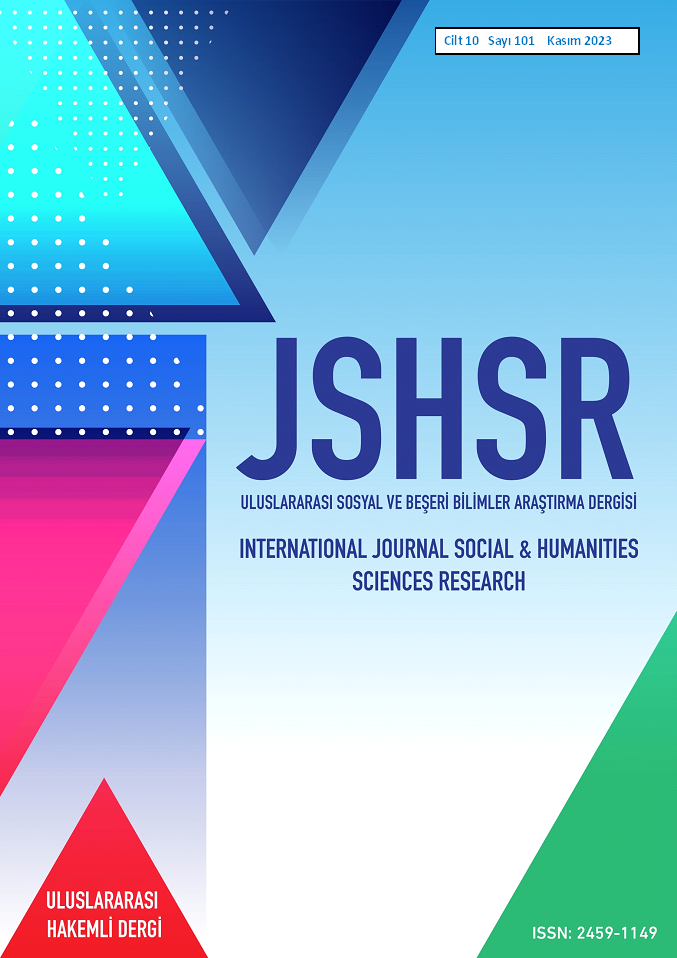Attitudes of 4th Grade Primary School Students Towards Mathematics Lesson
DOI:
https://doi.org/10.5281/zenodo.10257001Keywords:
Mathematics, attitude, student, teacher, course, programAbstract
This research, which was conducted to reveal the attitudes of 4th grade students towards mathematics courses, is a descriptive study in the survey model. In the study, all students were reached and data was collected online from 204 4th grade students who were willing and had their parents' permission. The reliability of the collected data was found to be high. The data showed normal distribution and parametric tests were performed in the analyses. Students' attitudes towards mathematics course are at the highest level in the item "I enjoy solving mathematical puzzles" and at the "Very High" level. "I listen carefully to my teacher in mathematics class." and "I review topics before mathematics exams" are followed at a "very high" level. The lowest average was "I wouldn't want to learn mathematics if I didn't have to." in the article and is at a “Very low” level. It was observed that the students' attitudes towards the mathematics course were at the highest level in the sub-dimensions in the interest dimension at the "High" level, and this was followed by the "High" level throughout the study. While their attitudes were measured at a "Low" level in the anxiety dimension, the lowest level was measured at "Very low" level in the necessity dimension. Your general attitudes towards mathematics course are at the "medium" level. While it was seen that 4th grade students were highly interested in the mathematics courses and worked hard, they were found to have a medium level of anxiety towards this course, and they saw the necessity of the mathematics course at the lowest level. While students' attitudes towards mathematics did not differ significantly according to their families' socio-economic levels and ages, they did differ significantly according to student gender, teacher gender, number of students in the class and level of liking mathematics lessons. According to their gender, 4th grade students' attitudes towards mathematics courses are higher in favor of boys in the interest and study dimensions, while they are higher in favor of female students in the anxiety and necessity dimensions. According to the gender of their teachers, their attitudes towards mathematics lessons were found to be higher in the anxiety dimension of students whose teachers were women. Students' attitudes towards mathematics courses are higher in terms of anxiety according to the number of students in the class, and in general mathematics course attitudes, the anxiety levels of students in classes with class sizes below 30 are higher than those of students in classes with student numbers 31-35. According to the level of liking the mathematics course, students with a moderate level of liking the mathematics course in the study dimension were measured both higher than those with a low level and higher than those with a high level.
References
Altınsoy, T. (2019). 5. sınıf Müzik eğitimi programının (2017) Stufflebeam’in Bağlam-Girdi-Süreç-Ürün (CIPP) Modeli’ne göre değerlendirilmesi (Mardin ili örneği). [Yüksek lisans tezi]. Bursa Uludağ Üniversitesi:
Bayraktar, B. (2014). İlkokul 2. sınıf İngilizce dersi öğretim programının öğretmen görüşlerine göre değerlendirilmesi. [Yüksek lisans tezi]. Bursa Uludağ Üniversitesi
Çeliker, G. (2015). Eğitim bilimleri ve öğretmen yetiştirme alan uzmanlarının eğitimde program değerlendirme öz-yeterlik düzeylerinin incelenmesi. [Yüksek lisans tezi]. Eskişehir Osmangazi Üniversitesi.
Demirel, Ö. (2015). Eğitimde program geliştirme kuramdan uygulamaya. Pegem Akademi
Fitzpatrick, J. L., Sanders, J. R. ve Worthen, B. R. (2019). Program değerlendirme alternatif yaklaşımlar ve uygulama rehberi. (çev. M. Kemal AYDIN ve Bünyamin BAVLI). Pegem Akademi
Gültekin, M. (2013). İlköğretim öğretmen adaylarının eğitim programı kavramına yükledikleri metaforlar. Eğitim ve Bilim, 38(169), 126-141.
Karasar, N. (2002). Bilimsel araştırma yöntemi. Nobel Yayıncılık.
Karasar, N. (2012). Bilimsel araştırma yöntemi kavramlar-ilkeler-teknikler. Nobel Yayıncılık.
Konukoğlu, L., Ağaç, G., Özmantar, M. (2019). Cumhuriyet Dönemi İlkokul Matematik Dersi Öğretim Programlarının Matematik Okuryazarlık Persoektifinden İncelenmesi. Batı Anadolu Eğitim Bilimleri Dergisi, 79-99.
Korkmaz, M. (2018). Açık ve uzaktan öğrenmede program değerlendirme: Çevrimiçi İngilizce sınav eğitimi uygulaması. [Yüksek lisans tezi], Anadolu Üniversitesi
MEB. (2018). Matematik Dersi Öğretim Programı İlkokul ve Ortaokul. Milli Eğitim Bakanlığı Öğretim Programı izleme ve Değerlendirme Sistemi: http://mufredat.meb.gov.tr
Orhan-Karsak, H. G. (2018). Eğitimde program değerlendirme kapsamında uzman yönelimli değerlendirme modeline genel bir bakış. Akademik Sosyal Araştırmalar Dergisi, 6(66), 161-176.
Özdemir, O. İ. (2021). Bilişim Teknolojileri ve Yazılım dersi öğretim programının öğretmen görüşlerine göre değerlendirilmesi. [Yüksek lisans tezi]. Gaziantep Üniversitesi.
Özdemir, S. M. (2009). Eğitimde program değerlendirme ve Türkiye’de eğitim programlarını değerlendirme çalışmalarının incelenmesi. Yüzüncü Yıl Üniversitesi, Eğitim Fakültesi Dergisi, 6(2), 126-149.
Özmantar, M. F., Bay, E., Ağaç, G. ve Ergün, M. (2016). Cumhuriyetin İlanından Günümüze Eğitimde, Program Geliştirmede ve Matematik Programlarında Yaşanan Değişim Ve Gelişmeler. Reform ve Değişim Bağlamında İlkokul Matematik Öğretim Programları (s. 47-88). içinde Pegem Akademi Yayıncılık.
Özüdoğru, F. (2016). İlkokul 2. sınıf İngilizce öğretim programının Diller İçin Avrupa Ortak Başvuru Metni doğrultusunda aydınlatıcı değerlendirme modeli ile değerlendirilmesi. [Doktora tezi]. Eskişehir Anadolu Üniversitesi.
Sağlam, M. ve Yüksel, İ. (2007). Program değerlendirmede meta-analiz ve meta değerlendirme yöntemleri. Dumlupınar Üniversitesi Sosyal Bilimler Dergisi, 18(18), 175-188.
Semerci, N. ve Özçelik, C. (2018). Okul yöneticilerinin eğitim programı kavramına ilişkin algıları. Bartın Üniversitesi Eğitim Araştırmaları Dergisi, 2(2), 1-12.
Sönmez, V., Alacapınar, F. G. (2015). Örnekleriyle eğitimde program değerlendirme. Anı Yayıncılık.
Türkoğlu, A. A. (2020). Karşılaştırmalı Eğitim Nedir? A. A. Türkoğlu içinde, Karşılaştırmalı Eğitim: Dünya Ülkelerinden Örneklerle (s. 1-20). Anı Yayıncılık.
Umay, A. (2002). Öteki Matematik. Hacettepe Üniversitesi Eğitim Fakültesi Dergisi, 23(23), 275-281.
Uşun, S. (2016). Eğitimde program değerlendirme: Süreçler yaklaşımlar ve modeller. Anı Yayıncılık.
Yazçayır, N. (2016). DAPDEM öğretim programı değerlendirme ölçütlerinin geliştirilmesi. Uluslararası Eğitim Programları ve Öğretim Çalışmaları Dergisi, 6(12), 169-186.
Downloads
Published
How to Cite
Issue
Section
License
Copyright (c) 2023 INTERNATIONAL JOURNAL OF SOCIAL HUMANITIES SCIENCES RESEARCH

This work is licensed under a Creative Commons Attribution 4.0 International License.


